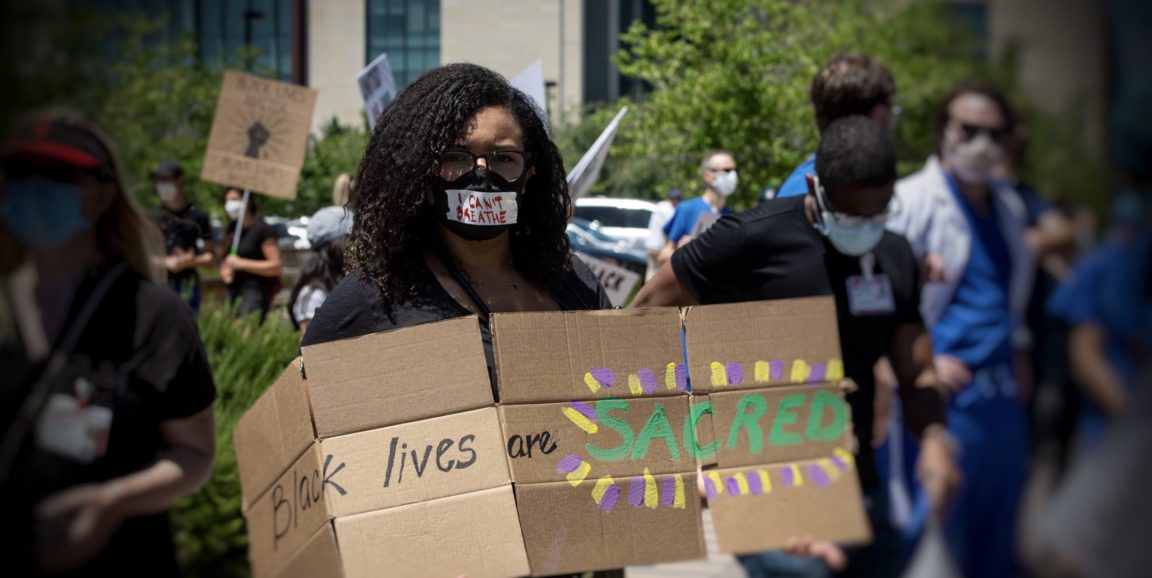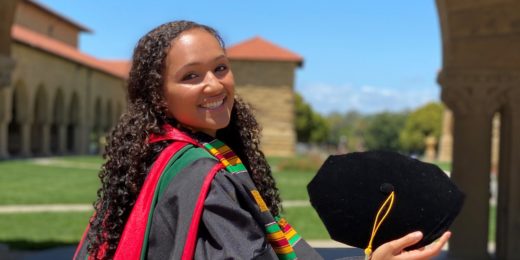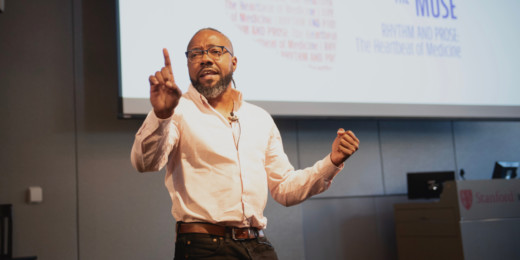On white paper my brown hands write
Brown man killed by bare white hands tonight
-- from a poem by Adjoa Boateng, MD, a critical care fellow at Stanford Medicine
During a clinical rotation at Stanford Health Care, Dasha Savage, a third-year medical student, found herself feeling protective toward a patient whom police officers wanted to question.
While other medical workers and patients barely noticed the police presence in the department, Savage and the patient were wary.
"The patient and I, the only Black people in the trauma bay, are the only ones who believe that cops come into our lives to break us, not protect us," Savage wrote as part of Stanford's Medicine and the Muse Program.
She read those words aloud on a recent episode of Forum radio show. The host, Michael Krasny, had invited Savage to speak, along with Boateng; Iris Gibbs, MD, a professor of radiation oncology and associate dean of MD program admissions; and Laurel Braitman, PhD, an adjunct professor of anesthesiology and the director of writing and storytelling at Stanford's Medicine and the Muse Program.
Cautiously optimistic
Boateng, Savage and Gibbs spoke about the way their status as medical professionals protects them from anti-Black racism, the hope they feel from the world's reaction to the death of George Floyd, and writing as a way to express themselves during this time of COVID-19 and heightened awareness about racism.
Savage read from a piece she wrote for the program: "My brown skin is protected by blue scrubs, by a hospital ID that says 'Stanford' and 'MEDICAL STUDENT' in big blue letters. The Black gunshot wound patients I meet in the trauma bay don't have the luxury."
Yet she and the other Black guests on the show said that they felt "cautiously optimistic" about the response to Floyd's death. She said that when she goes for runs around her neighborhood, she sees "Black Lives Matter" written out in chalk on the sidewalk. "I've never seen that around here before," she said.
Gibbs, who said that "writing is a catharsis" for her, noted that although anti-Black racism has existed throughout the United States' history, "This moment feels a little bit closer to a reckoning."
"Perhaps together we can find a way to bridge the divide and for the next generation to do better," she said.
Photo from Rally for Racial Justice demonstration at Stanford Medicine by Steve Fisch






